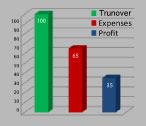Welcome to SAS
SAS has been designed and developed from over a decade of experience in Solicitors´ accounts preparation and SRA accountant's reporting.
The result is an easy to use accounting software that allows quick data entry, flexible sorting facility and has instant reports. It is not a black box, and the entries are clearly visible.
A powerful database means it can cater for a growing firm and from single to multi-users, the software has no boundaries.
SAS is constantly being upgraded and enhanced with new features being added regularly.
The software is dynamic and is currently developing the ability to monitor clients ledger and warn of some of potential breaches of the SRA Accounts Rules. Other developments include the ability to deal with multi-currency, branch accounting, setting workflows and much more. This will no doubt set a new standard in solicitor's accounting software.
CLIENT FILE

CLIENT MONEY

OFFICE ACCOUNT

FEE EARNER

TIME RECORDING


